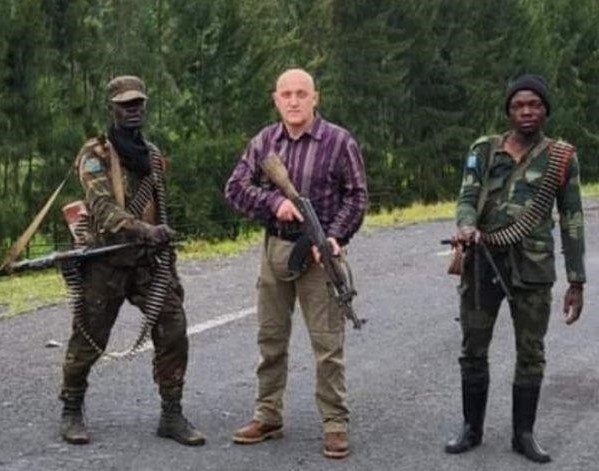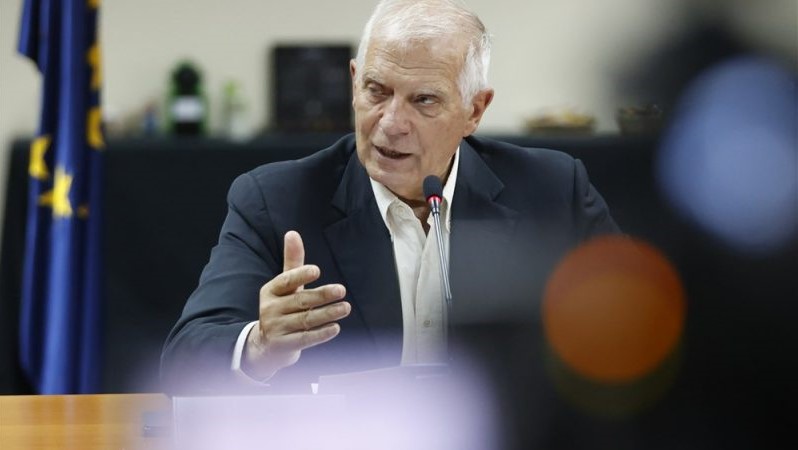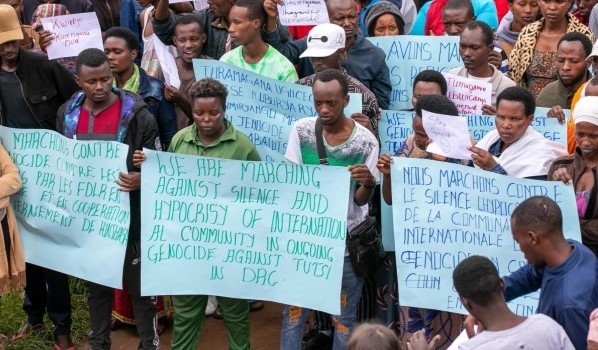Regional
DRC: Mercenaries will bury this lawless country

A mercenary,
sometimes also known as a soldier of fortune or hired
gun, is, according to Wikipedia, a private individual, particularly a
soldier, that joins a military conflict for personal profit. As
noted, mercenaries fight for money or other forms of payment rather than for
political interests. And this is where, for the most part, the problem lies.
Addressing
the Financial Times meeting in London, in October 2022, Democratic Republic of Congo
President Félix Tshisekedi said he would not bring in mercenaries to deal with a
nagging rebellion in his country’s volatile east, but described having
mercenaries as ‘fashionable’.
Two
months later, social media and mainstream media were awash with photos of armed
Westerners loitering around Goma airport. In attempting to cover up, Kinshasa claimed
that these white armed men were from ‘private military companies’ often
referred to as mercenaries.
These
mercenaries are often composed of demobilised and disgruntled Western soldiers.
They are not governed by any laws and they tend to appear frequently in areas
that are either rich in oil or other valuable minerals. The DRC being a
mineral-rich country has always been on the radar of mercenaries. They pick
particular gigs for selfish reasons. All they do is plunder natural resources
and leave countries more wreaked than before. That is why there is no record,
globally, of any situation that has ever been fixed by mercenaries
It
is not the first time Kinshasa is working with mercenaries.
In late 2015, then President Joseph Kabila
hired cyber mercenaries, Black Cube, to gather intelligence of Kabila’s enemies.
The deal with Black Cube stood at around $20 million.
The
mercenaries now present in Goma arrived under the guise of training Congolese soldiers.
However, they are more engaged in fighting the M23 rebels. They fly Congolese
fighter jets which have violated Rwanda’s airspace on two different occasions. The
latest of those mercenaries is the 100-man personnel from Russia’s Wagner Group
- the group’s mission in Mozambique was a disaster – and 103 ex-French
Legionnaires flown into DRC from Bucharest, Romania. They landed in Goma.
According
to media reports, Wagner, a private military company, has been accused of human
rights violations in Mali and Central African Republic.
The
ex-French Legionnaires, according to Africa Intelligence, are under the command
of Romanian war entrepreneur Horatiu Potra, a former French Foreign Legionnaire
who now works in private military services.
Potra
made a name for himself in Chad and the Central African Republic, where he
trained the presidential guard of Ange-Félix Patassé for a time before being
suspected of collaborating with rebel leaders.
Bulgaria
based mercenary group, Agemira, is reported to be operating in DRC. At its helm
is Frenchman Olivier Bazin, alias "Colonel Mario", a businessman,
active in Franco-African circles for some 30 years, and a broker in military
equipment.
Accredited
by the DRC Defence Ministry, Bazin’s company deployed around 40 personnel
guising as technicians to Goma. Most of them have served in the Soviet army.
Other
groups that have previously operated in DRC, since the 1960s, include the first
known mercenary group in DRC called ‘5 Commando’, active from 1964 to 1967. The
mercenaries were led by three men – Mike Hoare, John Peters and later Georg
Schroeder, at different occasions. Hoare is one of the richest mercenaries that
ever existed. Forbes and Business Insider estimated his net worth to be $5 million.
The
‘5 Commando’ were known for unsanctioned killing, torture, looting and rapes in
recaptured rebel areas. In a press interview, Hoare himself described his men
as “appalling thugs.” Some South African members of the unit were later
convicted of manslaughter by Congolese courts.
The
DRC has had its own dose of mercenaries and it’s been sour. In his attempt to
fight the M23 rebels and cover up his failures, Tshisekedi decided to revise
the old script and re-activate the mercenaries.
But
there is a problem; a very big problem. These mercenaries are accountable to no
one in the dysfunctional government in Kinshasa. They are operating outside
Congolese law.
Worse
still, they value profits more than peace – as they have an economic interest
in prolonging conflict rather than reducing it.
Without
any doubt, eastern DRC's chance for peace and stability will be undermined by
the mercenaries flooding the country. The latter are a recipe for disaster.


.jpeg-20221214055432000000.jpeg)




